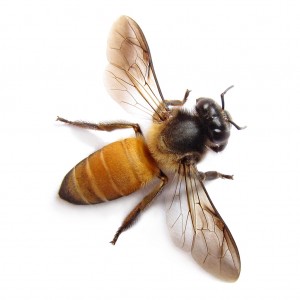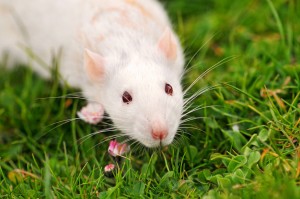Bees are capitalists, while mice are Marxists
My son begged for mice and then, when he got them, discovered that he didn’t really like them. I’ve always had a fondness for pet rodents (having gone the mouse, hamster, and guinea pig root when I was a child) so, rather than giving them away, I moved them into my office. Cleaning them is a minimal job, and I like having them around. While I work, they hunker down in their little house, occasionally cheeping and chirruping in a companionable way.
What I find especially endearing about the mice is that they remodel constantly. Every morning, I come into to my office to discover that they’ve moved around all the wood shavings in their cage. Those that were here yesterday, are there today, and vice versa. When they are awake (and they’re out and about if I’m up late at night or early in the morning), they are perpetually busy: climbing, running, gnawing, and moving those shavings.
“Busy as a mouse,” I thought to myself. And then wondered why the popular expression is “busy as a bee.” I mean, both are busy, so why bees?
The answer was obvious — mice labor only for themselves and produce nothing useful for others. Bees labor only for themselves, but in the process, they (a) fertilize plants and flowers; (b) make one of the world’s best food products; and (c) create a pleasant-smelling wax that once helped light people’s homes.
Bees are, in a way, the ultimate capitalists. Good capitalism harnesses the bee principle: in a free society, as people labor to better themselves, they produce excess to benefit others. That’s why a healthy capitalist economy isn’t the finite pie that Marxists always envision and that powers their redistributive policies. Marxists think like mice: lots of motion, but no benefit beyond the immediate motion itself. Or, as Milton Friedman said, if the benefit is to get the most people moving, don’t hand a few of them shovels to dig pointless holes; instead, give more of them spoons to dig those same holes. Mice and Marxists move things hither and yon, but they produce nothing.
The bees, concerned only with feeding and protecting themselves nevertheless create many things that are far great than the sum of their parts.
Think about it this way: In agricultural times, the farmer who ran around a lot but only managed to plant, cultivate, and harvest enough crops for himself was a mouse. The farmer who put the energy into planting more grain than his family needed, who spent his busy time actually cultivating that excess land, and who then harvested a bountiful crop, not only fed and enriched himself (by selling the excess), he also fed others, making him a bee. And hey, if he could create some super plow or harvest machine, not only would he produce more but, as a coincidental byproduct, so will others, and as a further byproduct, more people will avoid starvation.
Mice are cute and fuzzy. They’re also foolish, selfish, and vicious. Like Marxists, they are parasites who keep busy, decimate food sources, and have nothing to show for it other than the nice fat body of the mouse most successful at this parasitic lifestyle.
Bees are cute and buzzy. Like a good capitalist, their primary goal is to benefit themselves, but they’ve figured out that the greatest benefit occurs if their labor products byproducts that coincidentally and pleasantly benefit others as well.


